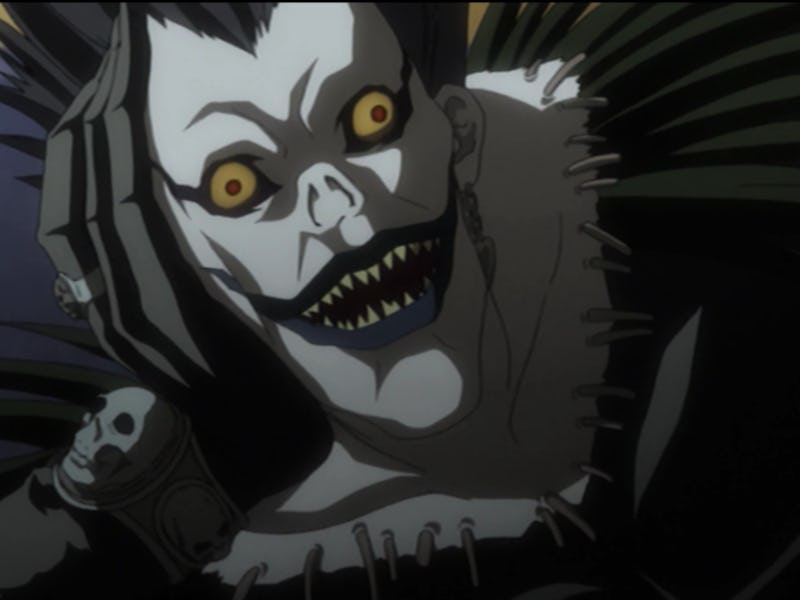'Death Note' Director Defends Against Whitewashing Claims
"There is no conspiracy to remove Japanese culture from Death Note."

Ever since it was announced, Netflix’s live-action film adaptation Death Note has been consistently taking heat for casting white and black actors in principal roles instead of Japanese ones, and for changing the story’s location from Tokyo to Seattle. Director Adam Wingard, who has a fantastic track record for original horror (but who made the stupendously bad Blair Witch remake) appears to be frustrated with the idea that he’s “whitewashed” a Japanese franchise.
First, Wingard replied playfully to the film’s promotional Twitter account, @Ryuk, when it asked him how the movie was progressing. After several people replied, demanding an answer to the whitewashing accusation, Wingard turned his attention to the critics. One Twitter user pointed out that he had only responded in the past to poorly worded criticisms, making it look like those concerned with whitewashing are, well, dumb. To that point, Wingard said:
In this series of tweets, he began defending against the whitewashing claim by saying that no one criticizing the film had actually seen it. However, this defense might bring to mind the similar one raised by the Ghost in the Shell team, who promised the story was more than it seemed. As it turned out, whitewashing in Ghost in the Shell was even worse than casting a white woman in a role previously written for a Japanese woman; Scarlett Johansson played a white-coded bot in which the soul of a Japanese woman survived. The “reveal” horrified those concerned with whitewashing.
Masi Oka, whom many fans know from Heroes, serves as a producer on Netflix’s Death Note. When confronted with accusations of whitewashing, Oka brought up Ghost in the Shell, too, though he argued that because Ghost in the Shell didn’t have a Japanese live-action film before it was adapted in America, the situation was trickier. Death Note, on the other hand, has five Japanese live-action films.
To Wingard’s point — “none of you have seen the movie” — a Twitter user replied:
In response, Wingard said, “There is no conspiracy to remove Japanese culture from Death Note. Its a fresh version of the story set in Seattle. Also see The Departed.” The Departed, of course, was a critically celebrated 2006 film which adapted Hong Kong’s Internal Affairs to Irish-American Boston. He added two more points:
This argument isn’t used as often in whitewashing controversies; Wingard side-steps the accusation that his film takes away valuable roles from Japanese actors in a large franchise and gives them to white and black actors. He says that because the film is about America rather than Japan, the way The Departed told a story with similar themes and plot devices based in Boston rather than Hong Kong, Death Note isn’t harmful. However, most people concerned with whitewashing aren’t worried about the film being “original” — the concern here is Hollywood and Netflix’s assumption that viewers won’t turn out to watch stories about Asian American people. It’s a movement much larger than Wingard’s work, and his non-Japanese Death Note feels ill-timed because of the rising concerns of Asian American actors.
A couple of Twitter users also accused Wingard of glorifying gore and violence in his new film, which, admittedly, isn’t a concern of many Death Note fans. In response to complaints that the story is too dark — seriously, are people actually asking whether his horror film is glorifying gore? — Wingard assured fans that all violence serves the story. He also added that Death Note wouldn’t be a “watered down Dragonball pg cheese fest,” reminding us all that we still haven’t gotten a great live-action version of Dragon Ball Z.
God forbid we ever do; can you imagine the studio’s casting process?
See also: Japanese Fans Are Confused by the Whitewashing Controversy, Too